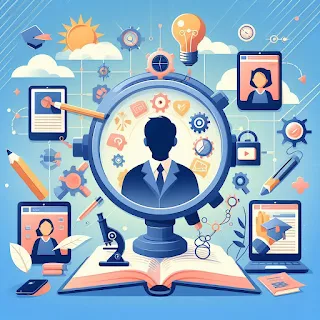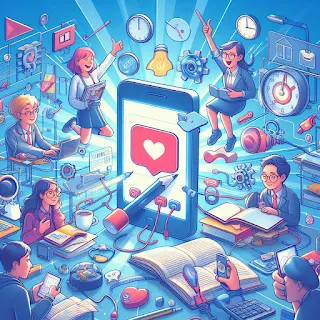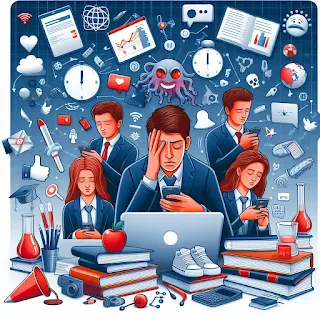The issue of mental health has become more important in the recent past following the outcry from many individuals regarding their struggles. There has been a slow process in which the negative attitude towards mental illness is being eroded and as a result, people are now comfortable seeking for help/show more comfort in seeking help. In this paper we shall explore different factors that trigger mental disorders as well as why it is essential for these conditions to be de-stigmatized.
Mental health problems must be taken care of, huge difference in person’s whole health and quality of life. Undealt with mental issues can bring severe outcomes, namely ruined relationships, poor performance at work or studies, and sometimes even put at higher risk to self-injury or committing suicide.
If we shed light on these problems, demand that discussions be open, then it means one person will not feel alienated anymore, but will be armed with courage that comes from realizing ways of asking for help. The bottom line is; there must be ways of dealing with mental issues because this is what makes a healthier society that supports every person.
Positive Effects of Social Media on Academic Performance
Students can use social media to connect with friends and colleagues as well as share informative materials hence improving their learning ability that ultimately results in increased marks. It boosts interaction among peers thus positively impacting education outcomes through academic achievements. Consequently, this positive development in social media could improve grades in school leading to a stimulating teaching atmosphere.
Social media is good for students to gather different types of educational resources and information online. Besides e-books including journals, it includes educational videos and tutorials.
Social media is able to enable students to acquire more knowledge of complex subjects and to be informed about the developments in his or her area of specialization through providing necessary information quickly and easily. And so this kind of access to materials for learning contributes essentially to learners’ success in school and supports their growth generally.
Moreover, via online platforms such as Facebook and Twitter, learners may interact with tutors hence helping them better comprehend concepts taught in class hence improve their understanding. As a whole, the educational importance of social media like Facebook in helping students gain greater insight and also develop expertise cannot be underestimated."
Negative Effects of Social Media on Academic Performance
Social media might negatively impact academic performance in a significant manner. Inability of students to concentrate on their studies or complete assignments on time can be attributed to endless scrolling and notifications.
Students are affected in such a way that this can lead to procrastination and low productivity levels hence affecting their overall academic success. However, it therefore crucial that learners be cautious of the way they use these online platforms and put appropriate measures to avoid it infringing on their studies.
As students fall further and further behind with tasks, they might start putting off completing them even more. This could mean that increased use of social media leads down motivation levels and towards disinterest for studying. Given the appeal of social networks to learners at all times, especially when they should be working or studying, staying focused on assignments can be hard for them at best; therefore, they cannot set proper orders of importance regarding their studies. Thus, deadlines would be forgotten, hurried pieces submitted while quality generally goes down in students’ academic performances.
Students who feel that their grades suffer tremendously when they spend too much time on social media can decide to put restrictions on how much they use the internet for entertainment purposes and concentrate more on their studies. Creating specific timelines in which to visit social sites coupled with organization methods in time help them apportion enough time for both personal moments online and their educational requirements.
Students' self-esteem and motivation can both decrease when they constantly compare themselves with others through social media platforms. Often exaggerated and selectively chosen online persona of peers may lead them into thinking that their achievements are below par creates unrealistic aspirations in students and makes them feel unworthy. Consequently, it can damage an individual's capableness to prosper in education
In order to help this, students need to remind themselves that social media is not the most accurate representation of life but rather concentrate on their growth together with achievements personally made. Doing this will enable them keep a sound mind that will be the driving force in their education through giving priority to taking care of themselves as well as accepting who they are.
Strategies for Balancing Social Media and Academics
- A. Set specific time limits for social media usage.
- B. Ensure you have established time meant for studies and always include some short period for breaks to check social media
- C. Look for other activities or hobbies out of screen life to reduce usage and maintain total health status
- D. Learn to appreciate personal achievements and stages reached through mindfulness in every assignment
- E. In case someone still feels incompetent, she/he may talk to close allies, family members and even therapists to get assistance.
- F. Remember that academic success is not determined by social media presence, but by dedication and hard work. These practices help students to juggle between social media and academics ensuring they take care of their mental and emotional health first.
Block those website distractions with productivity aids and make sure each study session has its goals clearly spelt out. In so doing, students will remain attentive while following up their academic duties.
Moreover, allocated separate time for the usage of social media can help in setting up some boundaries and controlling the time used on the screen. Therefore, students can be able to perform well in their studies, and still get the goodness of social media by properly managing their time effectively with the use of technology.
Join the online academic forum for support and motivation. Such forums can give students a sense of belonging and responsibility, which will stimulate them to persevere with their studies. This will enable them to get vital advice, assistance and inspiration from other focused individuals.
Convoy perishes boredom and makes the academic journey look like a collective mission. In general, online academic communities are a necessary tool to lead students to the academic success and accomplishment of their aims.
Conclusion
To sum up, students find it easy to interact with other people, get assistance and keep working hard in their studies through online chat rooms. These virtual communities assist in reducing the sense of loneliness and promote various students’ collaboration throughout their academic lives. Generally, when a student becomes a member of these digital spaces, she or he can improve their school life and reach their objectives.
Students ought to mind how they handle social media and think about joining online academic communities in order to make their learning process not only interesting but also valuable. Students who become part of such associations are likely to feel encouraged as well as receive other forms of assistance which are all geared towards ensuring their academic success.
In addition to purely using social media for fun, students can as well use it for purposes of enhancing their intellect and interacting with those who think like them. It is greatly helpful for students to be part of virtual academic communities.




No comments:
Post a Comment